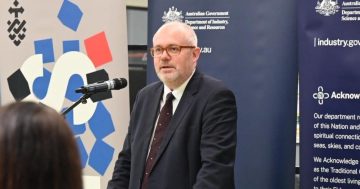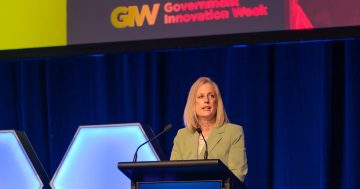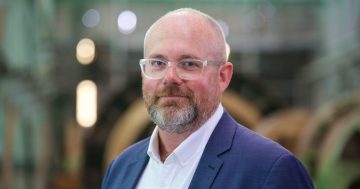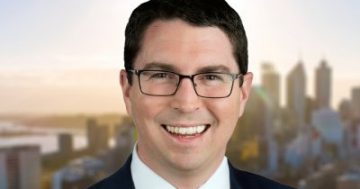
The Federal Government has established an AI expert group to advise on the way ahead. Photo: Envato.
Industry and Science Minister Ed Husic has established an artificial intelligence expert group to advise the Federal Government on the best way forward in using and regulating the increasingly used technology.
The group has already started work and met for the first time on Friday, 2 February.
It will be in place until 30 June this year, with consideration underway for longer-term arrangements.
Making the announcement on Wednesday (14 February), Mr Husic said the expert group would advise the Department of Industry, Science and Resources on immediate work around transparency, testing and accountability, including options for AI guardrails in high-risk settings, to help ensure AI systems are safe.
“This artificial intelligence expert group brings the right mix of skills to steer the formation of mandatory guardrails for high-risk AI settings,” Mr Husic said.
“With expertise in law, ethics and technology, I’m confident this group will get the balance right.
“It’s imperative sophisticated models underpinning high-risk AI systems are transparent and well tested.
“Last month, I announced our interim response to the Safe and Response AI consultation, and now we’ve delivered this impressive group to work on the next steps.”
When releasing the government’s interim response to the Safe and Responsible AI in Australia consultation in January, the minister said he was considering mandatory guardrails for AI development to help ensure the technology is safe and used responsibly.
The establishment of an expert group was also flagged then, being described as a measure to help the government with options for mandatory guardrails of accountability for organisations developing, deploying and relying on AI systems.
Safety steps would also apply to the deployment in high-risk settings.
Mr Husic said it was clear that while AI has immense potential to improve wellbeing and grow the economy, Australians want stronger protections to help manage the risks.
In its ongoing consultation process, the government has sought views on mitigating any potential risks of AI and supporting safe and responsible AI practices.
Mandatory guardrails being considered relate to testing of products to ensure safety before and after release; transparency regarding model design and data underpinning AI applications; labelling of AI systems in use and/or watermarking of AI-generated content; and training for developers and deployers of AI systems, which could include possible forms of certification and clearer expectations.
The 12 appointees to the Artificial Intelligence Expert Group are:
- Professor Bronwyn Fox: CSIRO Chief Scientist, represents Australia on the panel overseeing the international Frontier AI State of the Science report.
- Aurélie Jacquet: A leading figure in the development of responsible artificial intelligence systems, Chair of Australia’s national AI standards committee, OECD expert on AI risks, and advisor on international AI certification initiatives.
- Dr Terri Janke: An international authority on Indigenous Cultural and Intellectual Property (ICIP).
- Angus Lang SC: A leading legal practitioner and sought after contributor on intellectual property law and AI, addressing developments in Australia and Europe.
- Professor Simon Lucey: Director of the Australian Institute for Machine Learning at the University of Adelaide, with a background in artificial intelligence, autonomous vehicles, and research spanning computer vision, machine learning, and robotics.
- Professor Jeannie Paterson: Founding co-director of the Centre for AI and Digital Ethics, and leading contributor to legal and regulatory reform processes in Australia and internationally.
- Professor Ed Santow: Co-founder of the Human Technology Institute, leading major initiatives to promote human-centred artificial intelligence.
- Professor Nicolas Suzor: A Future Fellow at QUT, a Chief Investigator of the ARC Centre of Excellence for Automated Decision-Making & Society, and expert on the governance of digital technologies.
- Professor Toby Walsh: Widely recognised voice on AI development, with leading roles at Data 61 and UNSW, and numerous international fellowships.
- Professor Kimberlee Weatherall: A Chief Investigator with the ARC Centre of Excellence for Automated Decision-Making and Society.
- Professor Peta Wyeth: An internationally recognised researcher on human-computer interaction, human-centred artificial intelligence, and design practice and management.
- Bill Simpson Young: Co-founder and CEO of Gradient Institute, founded to accelerate the ethical progress of AI-based systems, and leading technologist for the safe and responsible use of AI.
Original Article published by Chris Johnson on Riotact.











